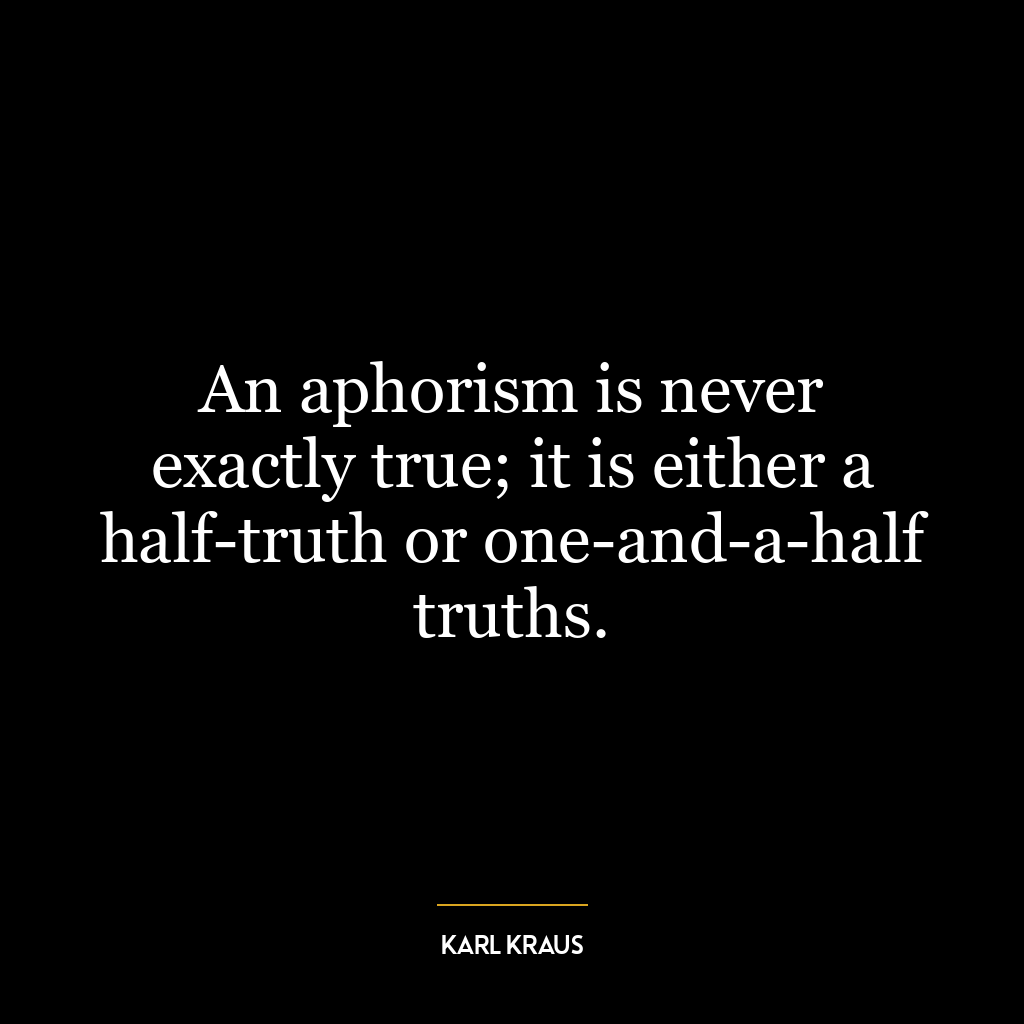An aphorism is never exactly true; it is either a half-truth or one-and-a-half truths.
This quote suggests that an aphorism, a brief statement expressing a general truth or principle, is never entirely accurate. It is either a half-truth, meaning it only conveys part of the truth, or one-and-a-half truths, implying it includes some additional information or exaggeration beyond the actual truth.
The statement underscores the inherent limitations of language and human understanding. An aphorism, by its nature, is a simplification of a complex idea or reality. It is intended to be concise and easily digestible, but in the process, it often omits nuances and complexities. Hence, it can be seen as a half-truth. On the other hand, to make an aphorism impactful and memorable, it may be embellished or exaggerated, thus becoming one-and-a-half truths.
In today’s world, this idea is particularly relevant in the era of social media and information overload. We are constantly bombarded with catchy slogans, sound bites, and memes, many of which are oversimplifications or exaggerations of complex realities. They can shape our perceptions and opinions, often without us realizing their partial or distorted nature.
In terms of personal development, this quote serves as a reminder to be critical and mindful of the information we consume and the beliefs we form. It encourages us to look beyond simplistic aphorisms and seek a more nuanced understanding of the world. It also reminds us to be conscious of our own communication, to strive for accuracy and honesty, and to be aware of the potential impact of our words on others.















